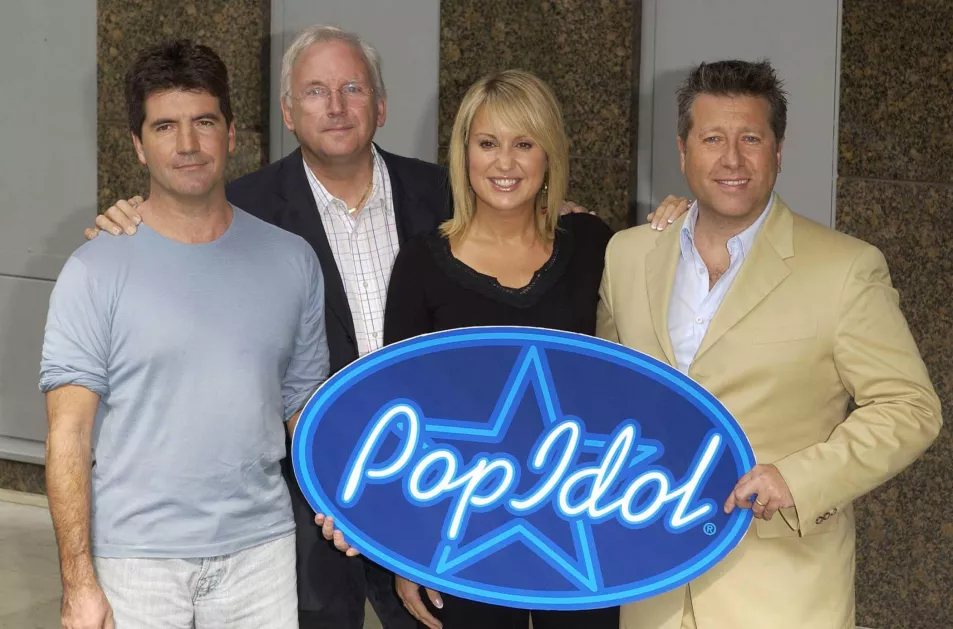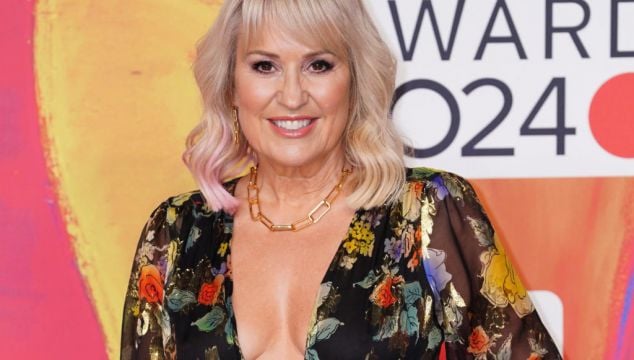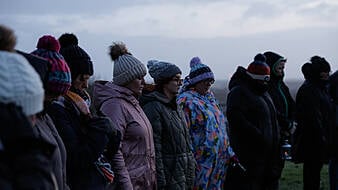It was the diagnosis of a golf ball-sized brain tumour which prompted Escape to the Country presenter Nicki Chapman to contemplate her life and perhaps even write a book about it.
“Receiving that news was, without doubt, the most shocking and frightening experience of my life – even worse than being chased by an elephant on safari with the Spice Girls,” she writes in the introduction of So Tell Me What You Want, her recollections of the crazy years she spent in the music industry.
While these days TV viewers will see Chapman, 57, admiring country houses with prospective buyers on the popular daytime BBC1 show, or admiring the flora and fauna as a presenter of the RHS Chelsea Flower Show, some may remember her judging musical talent shows Popstars with Nigel Lythgoe and Pop Idol alongside Simon Cowell, Pete Waterman and Neil Fox, before The X Factor came out.
View this post on Instagram
Advertisement
From joining MCA as a promotions assistant, plugging to get her artists’ songs on the radio, to working her way up the ladder to head of promotions at RCA, Chapman became a publicist tour de force in the Nineties and Noughties, promoting Take That, the Spice Girls, Annie Lennox and David Bowie, among others, and broke boundaries for women in the industry.
Meeting her today, you can see how good she is with people, and how she must have curated an enviable contacts book through her positive, persuasive aura, style and personality. One of her colleagues describes her as “ruthlessly polite”, which she likes.
Now a TV and Radio 2 presenter, who is married to Dave ‘Shacky’ Shackleton, MD of Phantom Music, Iron Maiden’s management company, looking back at her music career there are memories of the Spice Girls’ wild auditions, conversations with a young Gary Barlow – with whom she is still friends – and accounts of managing a young Billie Piper and Amy Winehouse.
“Gary is so talented and very funny. He can literally sit at a piano and do a ditty straight away,” says Chapman.

“Looking after the Spice Girls was like herding cats, trying to keep them all together. They all had something, there wasn’t a weak one in the band.”
She still keeps in touch, often bumping into Mel B and Mel C during the course of her work.
Yes, there was diva behaviour from some artists, most notably R&B star Bobby Brown, for whom she had secured a live performance on Top of the Pops, then the most important music show in the country.
His dancers were ready, but the star disappeared a few hours before the show to have a burger, and didn’t return. Chapman was blacklisted by Top of the Pops after that.
Unusual requests were commonplace. Iggy Pop and The Stooges asked for ridiculous things like a Bob Hope impersonator and seven dwarves in pointy hats; Prince requested a specific coffee machine, lavender and jasmine tea, Vitamin B shots and stipulated everything be wrapped in cling film. All food had to be served on a trestle table, like one you use for wallpapering.
Despite the diva demands, Chapman remains diplomatic.
“There was some incredible diva behaviour, but weigh this up. These people are on promo, working every day away from home, putting on that face, meeting their fans, performing, never really knowing what country they’re in – and just want things to be right,” she adds.

“If they’ve asked for food, they want it there, they don’t want to wait half an hour in the pouring rain for the car because it hasn’t turned up. Often, these tantrums aren’t because they are being outlandish. They’re worn down. They’re tired. You get fractious, don’t you?”
While the drug culture was present in the industry, Chapman wasn’t into it, she says.
“I wouldn’t be staying out getting drunk with Robbie (Williams) because the next day I needed to be on my game. That was my job.”
How tough did she have to be as a woman in the music business?
“You got on with it, you were aware of the chauvinism and the disparities, especially in salaries, which I found first hand – I’ve had it a few times in my life – but I found something that I adored and something that I was good at,” she reflects.
“There are different ways of being tough,” she asserts. “You don’t have to be the one screaming and shouting.
“I was reliable, trustworthy, transparent, hopefully good to be around.”
“We live now in a much more equal world – although there’s still a long way to go – and it’s much more inclusive than it was in my day,” she continues.
“Women have different strengths and we play to those without compromising who you are.”

But she did experience inappropriate behaviour from men who thought they could take advantage, she admits.
On one occasion a producer persistently put his hand on her knee during a theatre soiree with clients, while another suggested they all got a hotel if she let them work with one of her acts.
She took her next music job on the condition that she would never be asked to have lunch or dinner alone with either of the two men.
“I made sure when I was in those situations that I wasn’t compromised. When I was finding my feet, you could say that I was naïve. You could say, how sad that you can’t go out and have dinner with somebody without feeling that your safety is in danger,” she reflected.

Looking back, she says the mental health of music artists in those days was not a high priority.“We talk about the mental health of people in the music industry and fame, but look at the people with mental health (issues) that work in the NHS or who work in a bank. It’s now recognised across the board, and rightly so.”Chapman has just celebrated her 25th wedding anniversary to Shackleton, who she met at RCA Records.
“I married my best friend, my soul mate, someone that understands me, and I hope I also understand him. We never stop working at it.
“But I am extremely lucky to have him in my life. I always tease him and say he’s punching above his weight, but honestly, I’m punching above my weight.”
These days, TV and radio work fills much of her schedule, but Chapman is also a professional coach and works as a volunteer at her local Mary Portas Living & Giving shop in London to raise money for Save the Children, and supports The Brain Tumour Charity.
Her own non-cancerous brain tumour was removed and, so far so good. She returns for scans every 18 months.
“When they took the tumour out, it didn’t all come out, and the bit that was left has disappeared, which is not rare,” she says.
Has the experience changed her life?
“The only thing it really made me do is have a greater sense of gratitude. I had a brain tumour. I didn’t have brain cancer, but my surgeon and the NHS had that conversation with me. I made my will. You know, nothing is given and it does give you an appreciation.”
So Tell Me What Your Want by Nicki Chapman is published by Sphere. Available now.







